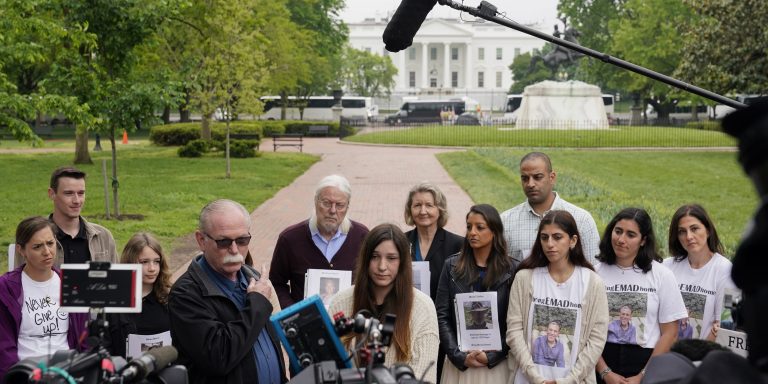INTELBRIEF
June 20, 2022
IntelBrief: Standing with Americans Held Hostage and Unlawfully Detained Abroad

Bottom Line Up Front
- Often referred to as “hostage diplomacy,” an increasing number of states today are unlawfully detaining foreign nationals within their criminal justice systems for use as foreign policy leverage.
- In May 2022, the U.S. government officially determined that American WNBA athlete Brittney Griner was, and continues to be, “wrongfully detained” by the Russian government.
- State actors have now surpassed non-state actors as the leading entities holding U.S. nationals abroad.
- While the U.S. government must shore up its hostage recovery enterprise, individual citizens and communities increasingly need to take precautions of their own when planning travel abroad.
In recent decades, observers have largely associated hostage-taking as a common practice among non-state actors, with terrorist groups, criminal organizations, and drug cartels among the most well-known perpetrators of these crimes. While global hostage-taking of Americans by non-state actors continues, observers are generally less aware of the growing risks posed by state actors engaging in the wrongful or unlawful detention of foreign nationals. Often referred to as “hostage diplomacy,” an increasing number of states today are unlawfully detaining foreign nationals within their criminal justice systems for use as foreign policy leverage. This cruel tactic has impacted Americans, as well as other Western nationals including citizens of Britain, Canada, and France. While this tactic is hardly new to coercive diplomacy, its use is increasingly on the rise.
In May 2022, the U.S. government officially determined that American female basketball superstar and WNBA athlete Brittney Griner was, and continues to be, “wrongfully detained” by the Russian government. The terminology used in the U.S. statement is significant and builds on the landmark 2020 Robert Levinson Hostage Recovery and Hostage-Taking Accountability Act, which codified into law how the U.S. government manages hostage and unlawful detention cases. Among the implications for Griner’s case, the determination means that responsibility will be transferred from the State Department’s consular affairs staff to the Office of the Special Presidential Envoy for Hostage Affairs (SPEHA) to negotiate her release. Griner’s is the latest in a string of similar cases in which U.S. nationals are held by autocratic states to gain diplomatic leverage over the United States. Americans abroad are not the only victims of this tactic, as foreign nationals have also been unlawfully detained in Russia, China, Iran, Venezuela, and other countries as part of this growing challenge. Despite their expressed opposition to the tactic, Western countries and the U.S. have engaged in similar practices as evidenced by the Canadian detention of Chinese Huawei executive Meng Wanzhou, following a request by U.S. officials. Violations of these international norms affect countries around the world and destabilize the existing rules-based order.
U.S. hostage advocates, to include former hostages and their families, have played a leading role in closing information gaps on hostage matters. Critical data and analysis, provided annually by the James W. Foley Legacy Foundation, highlights a significant shift in global hostage-taking against Americans: state actors have now surpassed non-state actors as the leading entities holding U.S. nationals abroad. Data from 2021 identified 19 public cases of U.S. nationals detained by non-state actors, while 43 cases of state-sponsored unlawful detention cases were documented the same year. This trend, coupled with growing geopolitical uncertainty and fractured relations between the U.S. and international and regional powers, presents several implications for the U.S. government. As recently emboldened rival states challenge American preeminence, American citizens are likely to be detained in higher numbers and for longer periods of time by state actors. There is also legitimate concern that if states engaging in the practice are seen by others to benefit from it, others may be incentivized to follow suit.
Advocates for Americans held hostage abroad have found that in the cases of unlawfully or wrongfully detained U.S. nationals, it has taken between eight months to two and a half years to gain access to the diplomatic support needed to resolve their cases. These individuals often languish for months or years in consular affairs bureaucracy alongside thousands of lawful detention cases. While the U.S. government must shore up its hostage recovery enterprise, individual citizens and communities increasingly need to take precautions of their own when planning travel abroad. Greater awareness is needed among U.S. travelers about the growing risk posed by the temptations of “hostage diplomacy.” The threat should also be communicated to professional networks sending people abroad: businesses, media organizations, humanitarian organizations, academic institutions, sports teams, religious groups, and others. As with other security threats, business and recreational travelers alike should be warned about countries utilizing “hostage diplomacy.”
Hostage-taking is ultimately about leverage, and both non-state actors and state actors in search of bargaining power find themselves in a ripe geopolitical environment to detain Americans abroad. The U.S. government must continue to enhance its hostage recovery enterprise to ensure it keeps pace with the challenges facing Americans today, especially the rise in “hostage diplomacy.” Simultaneously, the U.S. must work in tandem with allies and partners to foster multi-lateral responses and support to victims of this crime. As the challenge evolves, advocates for Americans held abroad remain steadfast: their government must prioritize the release and recovery of all U.S. hostages and those unlawfully detained abroad.